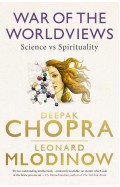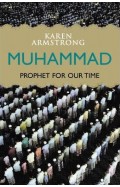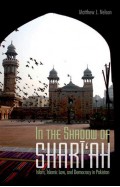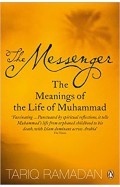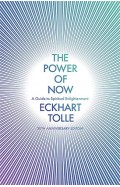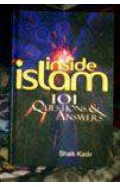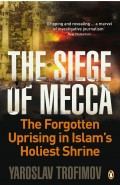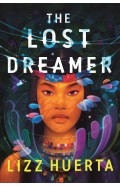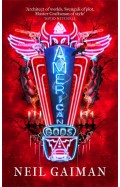- Home
- Books
- Young Adults
- Fiction
- Fantasy
- God, Science, And Self: Muhammad Iqbal's Reconstruction Of Religious Thought
God, Science, And Self: Muhammad Iqbal's Reconstruction Of Religious Thought
By: Nauman Faizi
-
Rs 639.20
- Rs 799.00
- 20%
You save Rs 159.80.
Due to constant currency fluctuation, prices are subject to change with or without notice.
RELIGIOUS STUDIES, ISLAMIC STUDIES "God, Science, and Self advances contemporary work in Islamic thought and religious studies by introducing a hermeneutics of modernity that has the potential to reshape analyses of modern thought and its relation to religious reflection." RANDI RASHKOVER, College of William & Mary and author of Nature and Norm: Judaism, Christianity, and the Theopolitical Problem "God, Science, and Self broadens the study of Iqbal in particular, and modern Islamic thought in general, demonstrating a modern, anti-colonial project that deserves to be revisited in the current context." ABDULKADER TAYOB, University of Cape Town Muhammad Iqbal (d. 1938) was one of the most influential modernist Islamic thinkers of the early twentieth century. His work as a poet, politician, philosopher, and public intellectual was widely recognized in his lifetime and plays a major role in contemporary conversations about Islam, modernity, and tradition. God, Science, and Self examines the patterns of reasoning at work in Iqbal s philosophic magnum opus, arguably the most significant text of modernist Islamic philosophy, The Reconstruction of Religious Thought in Islam. Since its initial publication in 1934, The Reconstruction has left scholars in a quandary: its themes appear eclectic, and its arguments contradictory and philosophically perplexing. In this groundbreaking study. Nauman Faizi argues that the keys to demystifying the contradictions of The Reconstruction are two competing epistemologies at play within the work. Iqbal takes knowledge to be descriptive, essential, foundational, and binary, but he also understands it to be performative, contextual, probabilistic, and vague. Faizi demonstrates how these approaches to knowledge shape Iqbal s claims about personhood, God, scripture, philosophy, and science. God, Science, and Self offers an original approach to interpreting Islamic thought as it crafts relationships between scriptural texts, philosophic thought, and scientific claims for modern Muslim subjects.
RELIGIOUS STUDIES, ISLAMIC STUDIES "God, Science, and Self advances contemporary work in Islamic thought and religious studies by introducing a hermeneutics of modernity that has the potential to reshape analyses of modern thought and its relation to religious reflection." RANDI RASHKOVER, College of William & Mary and author of Nature and Norm: Judaism, Christianity, and the Theopolitical Problem "God, Science, and Self broadens the study of Iqbal in particular, and modern Islamic thought in general, demonstrating a modern, anti-colonial project that deserves to be revisited in the current context." ABDULKADER TAYOB, University of Cape Town Muhammad Iqbal (d. 1938) was one of the most influential modernist Islamic thinkers of the early twentieth century. His work as a poet, politician, philosopher, and public intellectual was widely recognized in his lifetime and plays a major role in contemporary conversations about Islam, modernity, and tradition. God, Science, and Self examines the patterns of reasoning at work in Iqbal s philosophic magnum opus, arguably the most significant text of modernist Islamic philosophy, The Reconstruction of Religious Thought in Islam. Since its initial publication in 1934, The Reconstruction has left scholars in a quandary: its themes appear eclectic, and its arguments contradictory and philosophically perplexing. In this groundbreaking study. Nauman Faizi argues that the keys to demystifying the contradictions of The Reconstruction are two competing epistemologies at play within the work. Iqbal takes knowledge to be descriptive, essential, foundational, and binary, but he also understands it to be performative, contextual, probabilistic, and vague. Faizi demonstrates how these approaches to knowledge shape Iqbal s claims about personhood, God, scripture, philosophy, and science. God, Science, and Self offers an original approach to interpreting Islamic thought as it crafts relationships between scriptural texts, philosophic thought, and scientific claims for modern Muslim subjects.
God, Science, And Self: Muhammad Iqbal's Reconstruction Of Religious Thought
By: Nauman Faizi
Rs 639.20 Rs 799.00 Ex Tax :Rs 639.20
Zubin Mehta: A Musical Journey (An Authorized Biography)
By: VOID - Bakhtiar K. Dadabhoy
Rs 892.50 Rs 1,050.00 Ex Tax :Rs 892.50
THE UNDERLYING RELIGION -An Introduction to the Perennial Philosophy
By: Martin Lings
Rs 760.00 Rs 950.00 Ex Tax :Rs 760.00
The Quest For Meaning: Developing A Philosophy Of Pluralism
By: Tariq Ramadan
Rs 1,185.75 Rs 1,395.00 Ex Tax :Rs 1,185.75
War of the Worldviews: Science vs Spirituality
By: Dr Deepak Chopra
Rs 797.50 Rs 1,595.00 Ex Tax :Rs 797.50
In the Shadow of Shari'ah: Islam, Islamic Law and Democracy in Pakistan
By: Matthew J Nelson
Rs 2,347.50 Rs 4,695.00 Ex Tax :Rs 2,347.50
The Messenger: The Meanings of the Life of Muhammad
By: Tariq Ramadan
Rs 2,236.00 Rs 2,795.00 Ex Tax :Rs 2,236.00
THE UNDERLYING RELIGION -An Introduction to the Perennial Philosophy
By: Martin Lings
Rs 760.00 Rs 950.00 Ex Tax :Rs 760.00
Middle School Misadventures: Operation Hat Heist!: 2
By: Jason Platt
Rs 1,270.75 Rs 1,495.00 Ex Tax :Rs 1,270.75
Zubin Mehta: A Musical Journey (An Authorized Biography)
By: VOID - Bakhtiar K. Dadabhoy
Rs 892.50 Rs 1,050.00 Ex Tax :Rs 892.50
God, Science, And Self: Muhammad Iqbal's Reconstruction Of Religious Thought
By: Nauman Faizi
Rs 639.20 Rs 799.00 Ex Tax :Rs 639.20
THE UNDERLYING RELIGION -An Introduction to the Perennial Philosophy
By: Martin Lings
Rs 760.00 Rs 950.00 Ex Tax :Rs 760.00












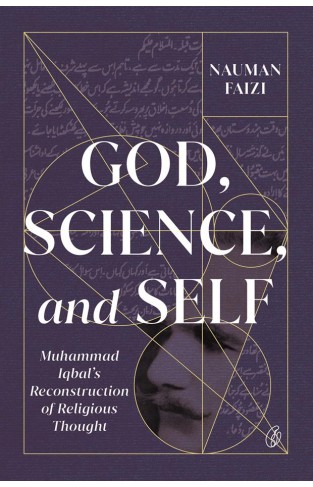
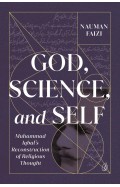
-120x187.jpg?q6)











